Maputo, Mozambique
May 7, 2023
We just finished—wait for it—a pirate drill. Apparently we are about to enter a high-risk area (HRA) for piracy. Not something you see every day.
Anyway, we arrived in Maputo, Mozambique on Monday, May 1st. Now officially known as the Republic of Mozambique, it has a population of 30 million people. The country is well endowed with natural resources, particularly natural gas. But corruption is endemic and the country remains one of the poorest in the world. Its main industries are fishing and tourism and the spread between rich and poor is one of the widest in the world.
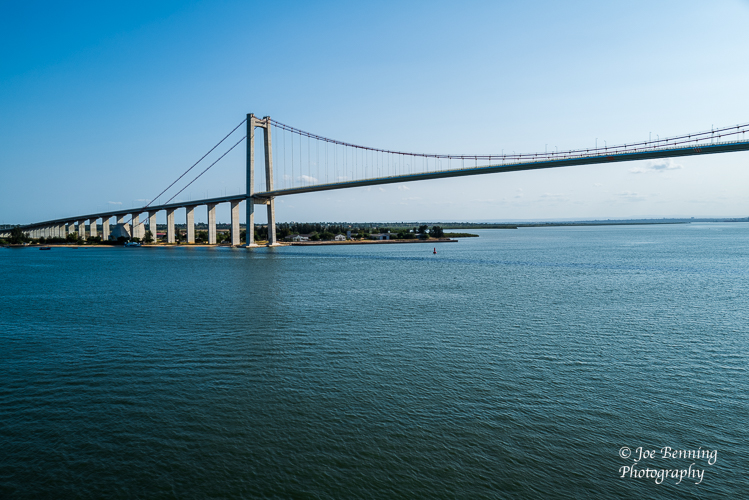
The country gained its independence from Portugal in 1975 and immediately changed its name to the People’s Republic of Mozambique, then named streets after Mao Tse Tung, Ho Chi Minh and Karl Marx, which goes a long way toward explaining its economic condition.
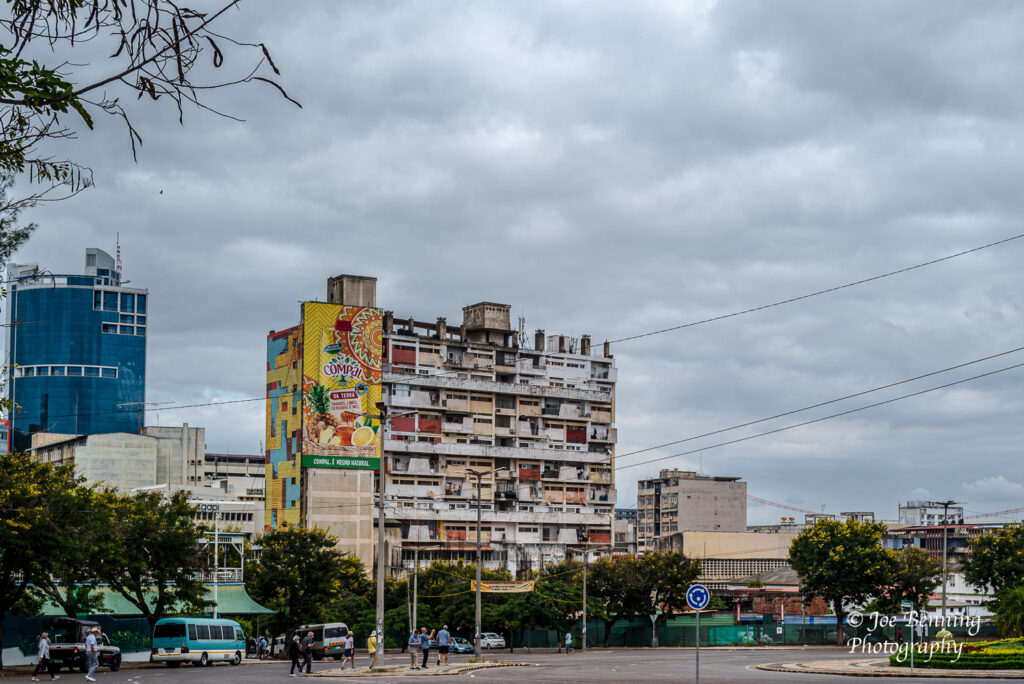
Within 2 years after gaining independence in 1975 a civil war broke out and lasted until 1992, at which time the ‘People’s” bit was dropped and the country’s name was changed to the Republic of Mozambique. Since then there has been some liberalization, economic growth has been a blistering 8% or so and thousands of state enterprises have been sold off. But the damage from experiments in Marxism-Leninism and years of civiil war have taken their toll and it will take a while for the country to become truly prosperous.
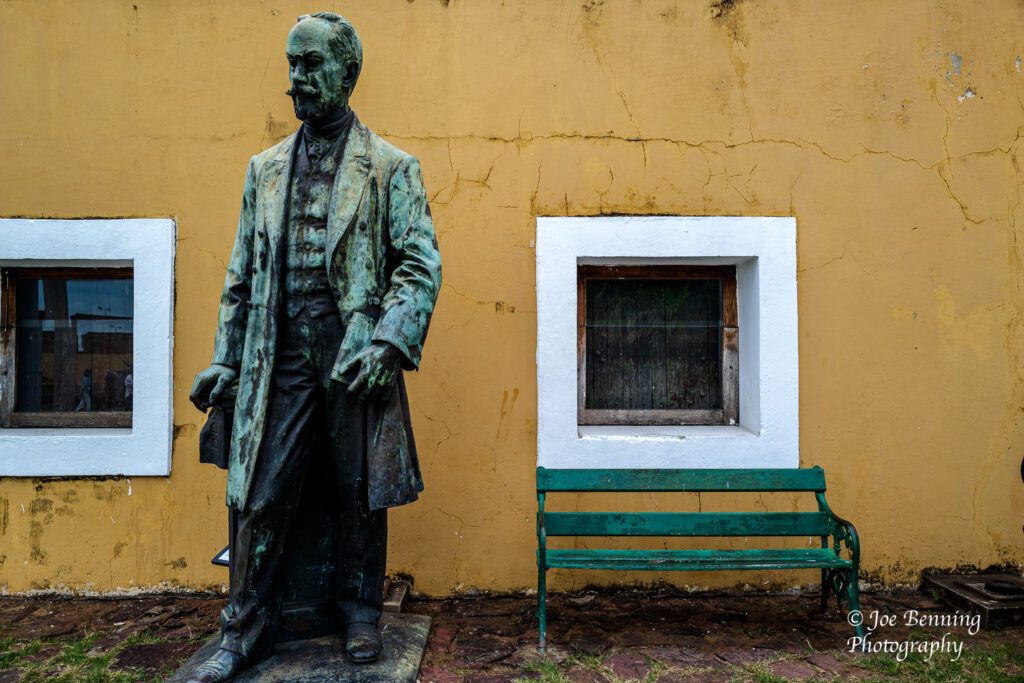
Mary Anne and I took a half-day tour around the capital, Maputo. As it turns out, it was a national holiday called Worker’s Day, I suppose in sympathy with May Day in Europe. We saw demonstrations of solidarity in the center of town where we visited the train station. We also saw the outside of the Cathedral of Our Lady of the Immaculate Conception.
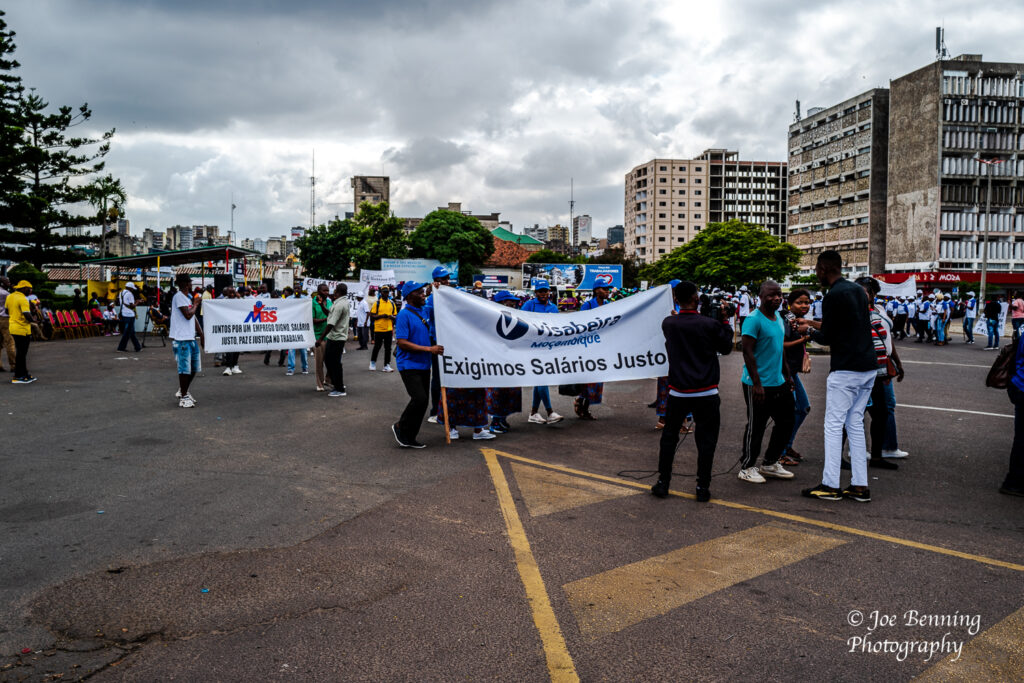
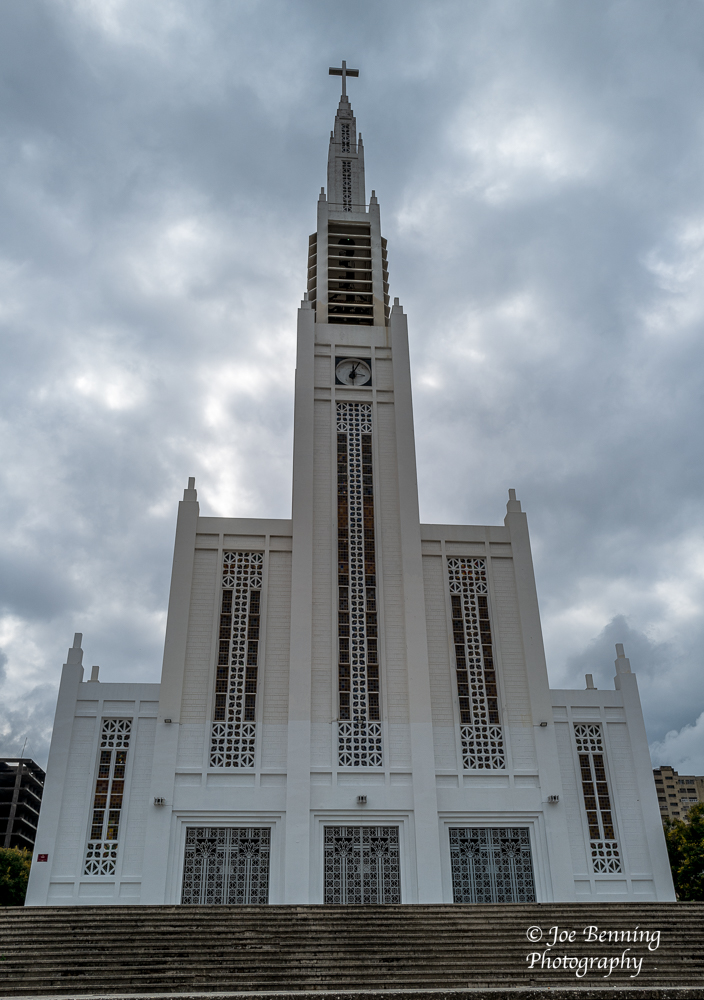
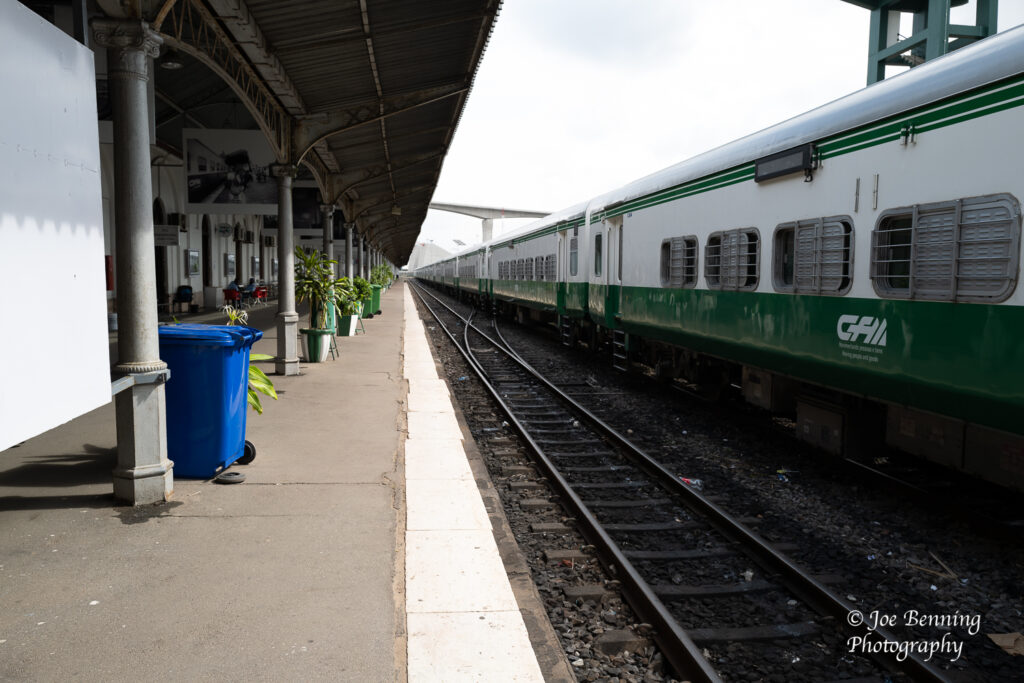
The city though, was dilapidated and the signs of its poverty were everywhere. One big problem is that the school system is an admitted disaster and the adult literacy rate is only around 60%—with 74% male literacy and only 45% female literacy. Mozambique has a lot of work to do if it is going to substantially improve its condition.
Joe
